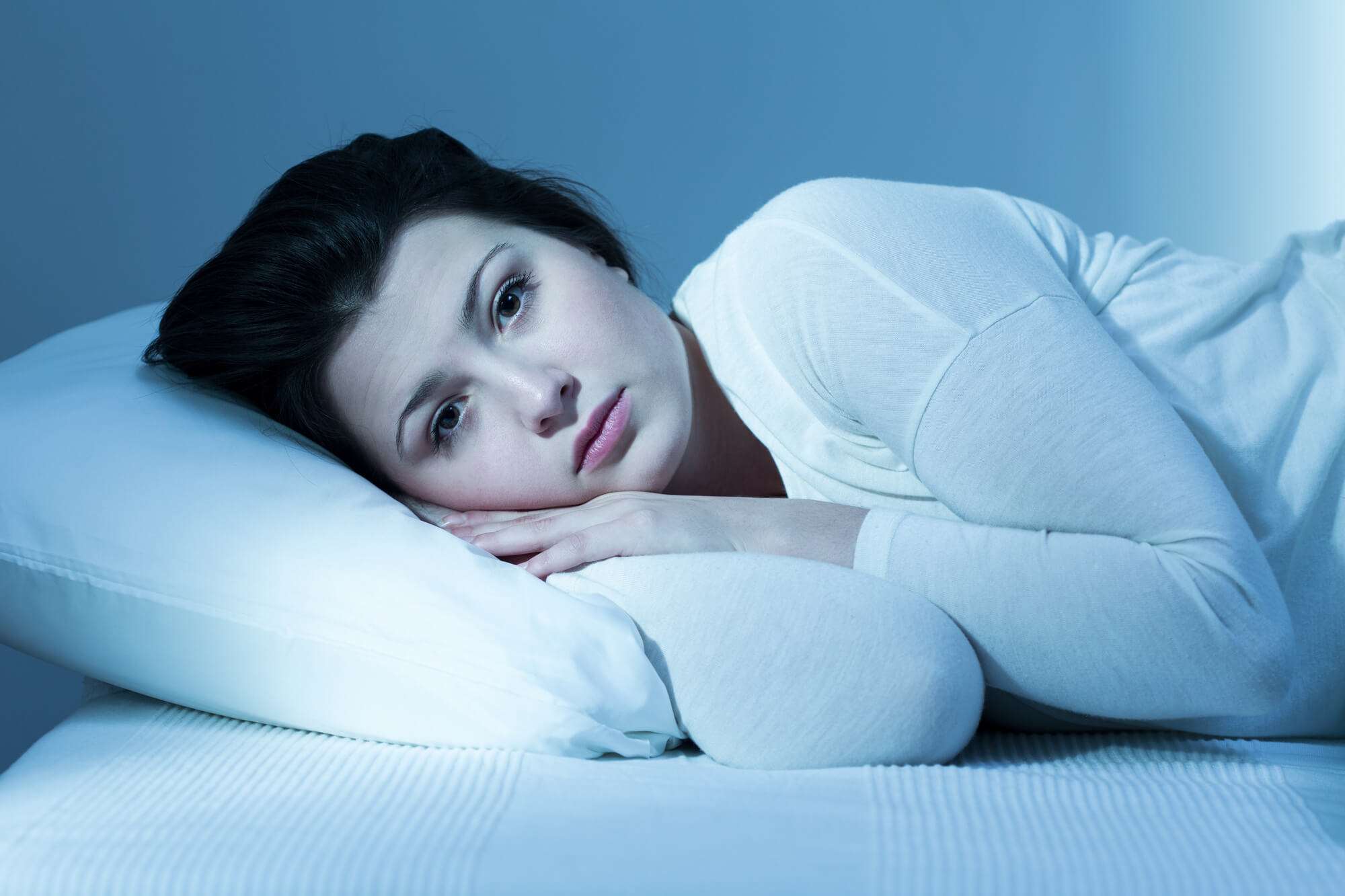Did you know that nearly 70% of Americans report that they struggle to fall asleep or stay asleep at least one night a week?
The problem of poor sleep is not only common, but also serious. Whether it’s because of medical problems, anxiety, staying up late to work, or a poor sleeping environment, sleep deprivation can have a serious impact on your life.
If you have been wondering, “How does lack of sleep affect the body?” then you’ve come to the right place.
Read on to learn more about the negative effects of not sleeping well.
Mental Effects
Your brain is one of your body’s most essential organs. Your nightly sleep is your brain’s opportunity to rest and recharge. It is no surprise, then, that a lack of proper sleep would impact your brain’s functions.
Trouble Thinking and Concentrating
One of the first effects you will notice after a poor night’s sleep is that you will likely have trouble thinking and concentrating the next day. Lack of sleep also impacts your problem-solving skills, which may make it difficult for you to tackle complex tasks.
This is because sleep is crucial to the proper functioning of your cognitive processes. Without proper, sleep, your cognitive processes will slow, making it hard to focus on tasks that require logical reasoning. Over time, if you struggle with chronic insomnia, this can affect your performance in work or school.
Memory Issues
Thinking of staying up until the wee hours of the morning to study for a big test? Chances are, you’d be better off going to sleep early and getting a good night’s rest instead. Studies show that staying up late to cram often leads to worse performance on tests, not better.
This is because sleep is essential to forming memories. During sleep, your brain makes connections between neurons to help you remember and process new information. When you’re sleep deprived, your brain can become too exhausted to properly perform these functions.
Mood Changes
In addition to affecting the way you think, sleep deprivation can change the way you feel. People who are sleep deprived are more prone to mood swings, and also more likely to feel irritable, angry, or hostile. In general, people who lack proper sleep are more likely to be reactive with their emotions.
Not only that, but sleep-deprived people may also have difficulty reading other people’s emotions. Another person’s happy expression may read as more neutral, or even hostile.
Sleep loss has also been correlated with anxiety and depression. This is somewhat ironic because many people have difficulty falling asleep or staying asleep because of their anxiety. It’s a possibility that the connection between sleep and anxiety is a vicious cycle, where lack of sleep causes anxiety which in turn causes lack of sleep.
Some scientists believe that these effects are related to the amygdala. The amygdala is the part of the brain that regulates the fight or flight instinct. Without proper sleep, people’s brains might have difficulty regulating the amygdala’s impulses.
Hallucinations
In extreme cases, sleep deprivation can lead to delirium or hallucinations.
If you’ve ever stayed up all night at a sleepover, you’ve probably experienced a mild version of this. After you’ve been awake for several hours, you might develop a serious case of the giggles, and find things funny that wouldn’t be as amusing with full rest.
In more extreme cases, however, sleep deprivation can cause your brain to misinterpret signals. This can cause you to see flickering or flashing lights, or to hear things that aren’t there.
Of course, if you are drifting off into short “microsleeps” throughout the day, you may also dream briefly. These brief dreams can make it difficult for you to differentiate between what is a dream and what is reality. So, while these are not technically hallucinations, it may feel like you’re hallucinating.
Behavioral Effects
These impacts on your brain’s functions will affect more than just the way you think. Ths will also impact your behavior and the way you act.
Poor Balance
As we mentioned before, lack of sleep can slow down your cognitive processes. This can also impact your physical coordination, which can lead to poor balance. In some cases, you may feel similar to how you feel when you are drunk when you’re sleep deprived.
Lowered Responsiveness
Another area where sleep deprivation is similar to drunkenness is in your body’s responsiveness and reaction time. In fact, studies show that the effect of sleep deprivation on reaction time is the same as the effect of alcohol.
If you’ve ever driven while exhausted, you may have thought that you were safe as long as you’ve kept yourself awake. In reality, the effect of sleep loss on your ability to drive is significant enough that driving while drowsy is just as dangerous as driving while drunk. In fact, estimates indicate that sleep deprivation causes as many as 20-percent of all car accidents.
Lowered Sex Drive
It would seem to be common sense that, if a person was extremely sleepy, they probably wouldn’t be in the mood to have sex. But chronic sleep deprivation can actually have an impact on a person’s physiological sex drive.
In men, lack of sleep can lower testosterone levels. This can cause a drop in libido, and make it difficult for a man to achieve or maintain an erection.
For women, sleep deprivation can impact vaginal lubrication. This effect can make women less interested in sex, and can also make sex less pleasurable or comfortable.
Physical Effects
While most people assume that sleep deprivation can affect your mind, they may be surprised to learn that it can affect your body as well. Failing to get the necessary sleep can have some fairly significant impacts on your physical health.
High Blood Pressure
Studies show that if you consistently sleep for less than six hours each night, your risk for high blood pressure increases.
The thinking behind this correlation is that sleep helps your blood regulate stress hormones and maintain a healthy nervous system. When you regularly deprive your body of sleep, this could impact its ability to regulate these hormones, which could lead to high blood pressure or could worsen already high blood pressure.
Additionally, your body needs to produce more cortisol, a stress hormone, to stay awake. This increased production of cortisol can also lead to high blood pressure.
Risk for Diabetes
In addition to heightened risk for high blood pressure, people who struggle with sleep deprivation are also at an elevated risk for diabetes. In fact, the cause of the increased risk of diabetes is related to the same factors that lead to higher blood pressure.
This is because disruption in sleep impacts your body’s hormone production, which in turn reduces secretion of insulin. Additionally, the increased cortisol secreted to keep your body awake makes it harder for the insulin in your body to do its job.
Weight Gain
Given that sleep deprivation can cause both high cholesterol and diabetes, it shouldn’t be surprising that it can also lead to weight gain. This effect is again due to hormone secretion that is disrupted by poor sleep.
When your body does not get enough sleep, it does not produce enough of the chemical that tells your body it is full. This can lead you to eat more, which can, in turn, lead to weight gain.
Furthermore, if you are tired, you probably won’t be exercising as much. Because of this, you will likely burn fewer calories, which can also cause weight gain.
Weakened Immunity
During sleep is when your body’s immune system recharges and attacks harmful germs and other invaders that could be in your body.
If you are not getting enough sleep, you are more likely to be exposed to germs, which means that you will be more likely to succumb to illness. Furthermore, if you’re already sick, failing to get enough sleep can make it more difficult for your body to fight off illness and get well.
How Does Lack of Sleep Affect the Body? The Evidence is Clear
When digging into the evidence, the answer to the question, “How does lack of sleep affect the body?” becomes evident. Simply put, the effects are not good.
Lacking sleep can cause you to lose productivity, gain weight, get sick, develop anxiety, and more. The bottom line is that, if you want to live your healthiest life, you need to get the proper sleep.
Do you want to get started on improving your sleep habits? Check out this guide to learn how to develop the ideal night-time routine.


